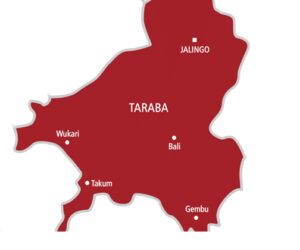The fifth Peace Anyiam-Osigwe Nigeria Digital Content Regulatory Conference (NDCRC) ended with a call from stakeholders for Nollywood to transition from volume-driven production to a value-focused industry.
The stakeholders said the industry must be one that prioritises audience understanding, quality content, regulatory compliance and digital security.
The News Agency of Nigeria (NAN) reports that the two-day conference, organised by the National Film and Video Censors Board (NFVCB) drew actors, directors, filmmakers, producers, distributors and regulators.
The conference was with the theme, ‘From Volume to Value: The Future of Nigeria’s Motion Industry in the Digital Age’.
Speakers, across various sessions at the conference, emphasised the need to redefine what success means in Nigeria, which is Africa’s largest film market.
Nigerian Filmmaker, Bolanle Austen-Peters, urged practitioners to rethink what truly constituted value in what she described as Nollywood’s survivalist culture, which had driven the need for quantity over quality productions.
“In an industry where subsistence is the order of the day, a lot of people just need to keep churning out this content.
“Exhibitors want the content. Distributors demand that they bring this content.
“In addition to that, some people just produce films on a regular basis because they want to stay relevant,” she said.
Citing ’93 Days’, her production on Ebola, she said: “We spent $1 million; and nobody’s watching it in Nigeria.
“It was a financial loss.”
Austen-Peters, who is also the Founder of Terra Academy For The Arts, emphasised that success of a film be measured by the legacy it leaves behind rather than its theatrical number.
She, however, cautioned filmmakers on how Nigeria was portrayed on screen, adding that storytelling has the power to shape global perception.
She further urged practitioners to make creative decisions that strengthen their personal and professional brands, insisting that excellence was non-negotiable.
The Executive Director of NFVCB, Shaibu Husseini, noted that while digital platforms offered new opportunities, the rise of online uploads without classification violated the law.
Also citing Section 2B and E and Sections 25, 28 and 31 of the NFVCB Act, Husseini warned that the violations must stop.
He said the board had enhanced regulatory efficiency, including the introduction of a quick comeback time for film classification now completed under 24 hours, to strengthen industry compliance and support creators.
He noted that strengthened enforcement was essential to ensure Nigeria’s content met global standards and also protected young audiences.
Husseini urged filmmakers to produce stories that inspire people, promote Nigeria’s heritage and elevate the nation’s creative output.
Also, Olori Temitope Ogunwusi, who represented her husband, the Ooni of Ife, Oba Adeyeye Ogunwusi, said it was important to protect the nation’s cultural identity in Nigerian storytelling.
The traditional ruler urged the practitioners to be intentional about storytelling, adding that they should inspire narratives that will encourage the next generation to think, dream and believe.
He further urged stakeholders for increased support for the creatives, greater investment in digital infrastructure and more robust intellectual property safeguards, to enhance Nigeria’s global presence.
During a panel on digital distribution, panelists urged filmmakers to prioritise their target audience, noting that one size did not fit all.
President, Nollywood Creative Minds Forum, Ijeoma Richards, said it was important that filmmakers understood who their audiences were, and also what they wanted.
“As long as it satisfies you and your audience, then it is fine,” she said.
Managing Director, Corporate Pictures Nigeria Ltd., Abdullahi Abdulrazaq, however, warned filmmakers to learn and understand the rules of engagement of digital platforms, particularly YouTube, so they don’t incur losses.
The panelists expressed concerns, including piracy, and the lack of independence in deciding the value and technology to use on digital platforms.
Nigerian Screenwriter and Producer, Chidi Nwokeabia, said, “You cannot depend on a system you don’t have power to. No special pattern. Just put something believing it will hit big.”
Nwokeabia urged NFVCB to help sanitise and regulate the content viewed on digital platforms.
The panel agreed that there was a need for Africa, especially Nigerian filmmakers to find ways to monetise without looking elsewhere.
Hannatu Musawa, the Minister of Art, Culture and Creative Economy, reaffirmed the Federal Government’s commitment to support the industry.
Musawa, who was represented by the Executive Director of the Nigerian Film Corporation, Ali Nuhu, pledged government’s support through innovation, artificial intelligence adoption, digital distribution and broadband expansion within the sector.
NAN also reports that Nollywood stars and legends who turned 50 and 60 years were celebrated at the conference.







